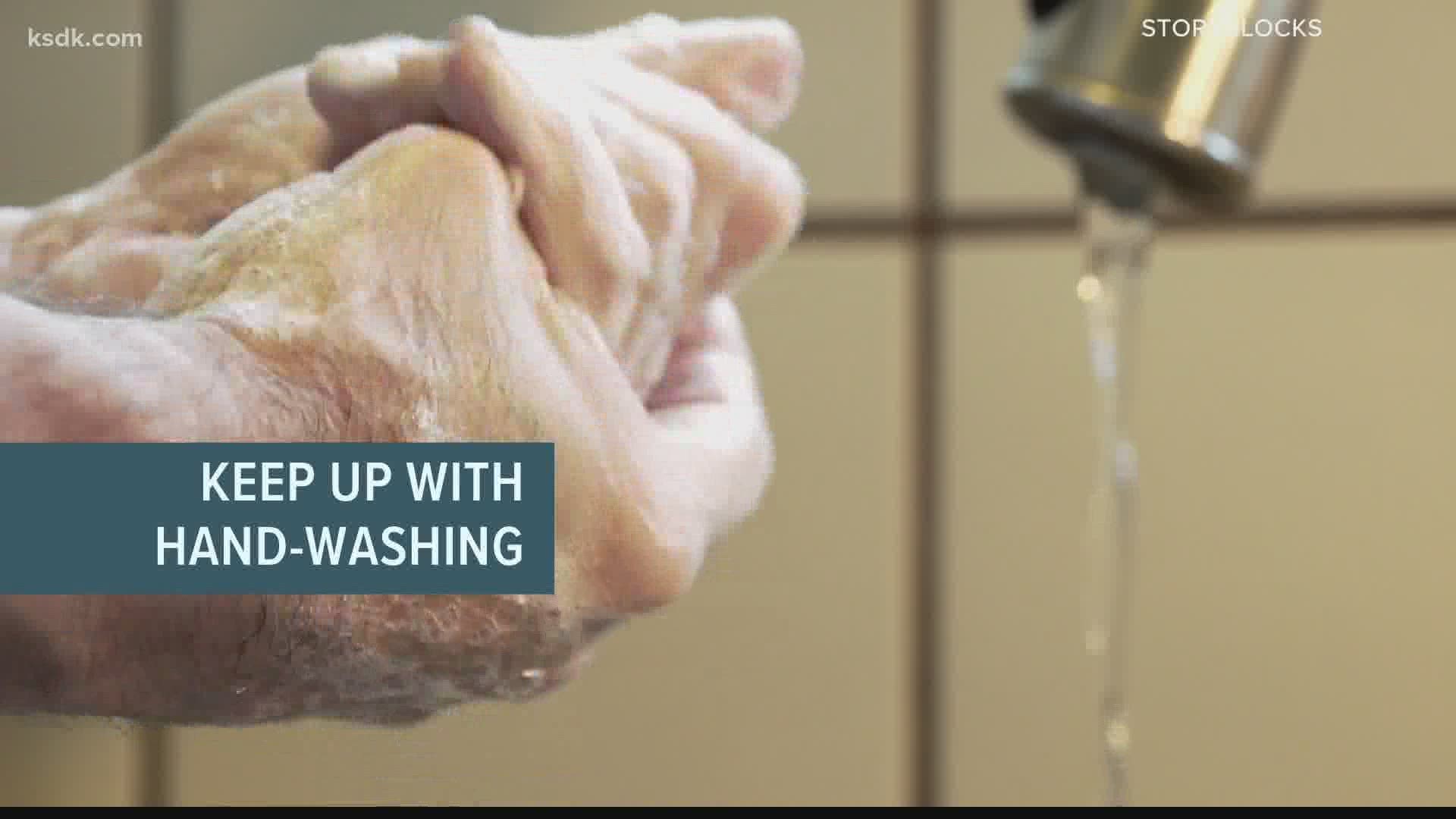ST. LOUIS — Packing up the home office and heading back to the office-office? Things shouldn't look the same as they did when you left months ago.
Here's what the CDC, OSHA and local doctors say your employer should be doing to keep you safe while the COVID-19 pandemic is still a concern.
- Check employee health daily. That means workers may get their temperatures checked or be asked a series of questions screening for symptoms.
- Assess areas in the workplace where a lot of things are touched or people must gather close together — high risk areas — and seek solutions.
- Employees should wear cloth face coverings wherever possible and needed.
- Work spaces should be separated by barriers or 6 feet of open space.
- Check the airflow system to allow for stagnant indoor air to be better broken up.
If someone in the office tests positive for COVID-19, the CDC recommends employers close off all areas visited by that employee, open doors and windows and then sanitize everything.
The CDC and OSHA, which monitor workplace safety, both recommend employers continue to offer flexible work hours and spaces, including continuing to work from home when possible. OSHA also recommends relaxing policies, like doctors notes if an employee calls in sick, as anyone displaying even minor symptoms should stay home.
“I think that's a difference because I think people are used to, 'Oh, I’m a little sick, I'll tough it out and I'll go,' and I think what we've learned with this virus is it can present with very mild symptoms, especially early in the course,” said Dr. David Warren, an infection disease specialist at Washington University and Barnes-Jewish Hospital. “Early in the course is when people can be most contagious.”
In order to encourage people to stay home if they’re sick, the U.S. Department of Labor announced in April an emergency paid sick leave police that covers up to 80 hours. Find out more about the policy here.
Read more related coverage here:
- The mistake you're probably making with your face mask
- Are you ready to eat out again?
- COVID and curfews: Small business owners adapt to yet another hurdle
- CDC updated its guidance on COVID-19 and surfaces: Here's what that means for your home
- How hotels, Airbnbs are making room for safety procedures
- How to make your own face shield at home
- Restaurants in St. Louis city and county reopen — with changes
- Barriers for re-entry: St. Louis business pivots to make Plexiglas barricades

